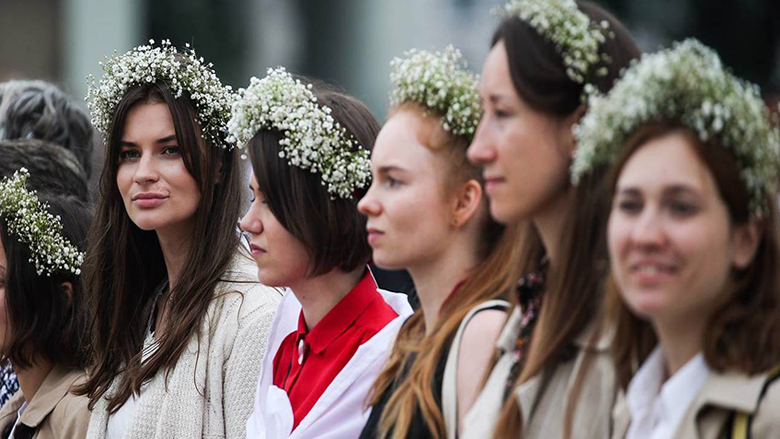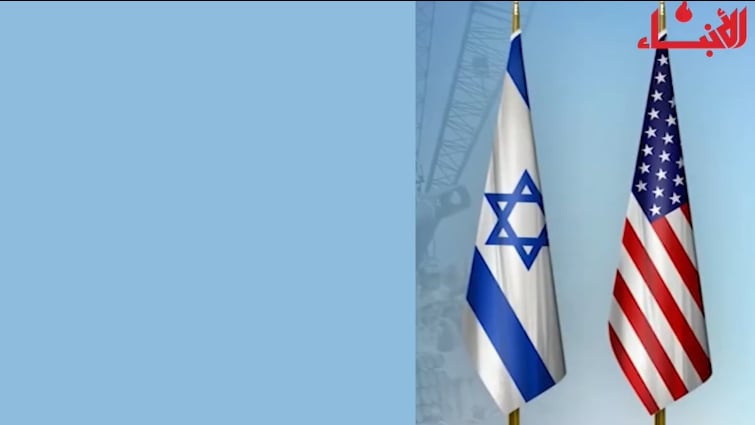Huge protests have swept Belarus since Aleksandr Lukashenko fraudulently claimed to have won 80% of the vote in the August 9 presidential election. The country’s future may now hinge on Russian President Vladimir Putin.
Lukashenko has ruled Belarus since 1994, not without popular support, even gaining the sobriquet Batka (“father”). But in recent weeks, enraged citizens from all walks of life – including factory workers, doctors, and journalists – have been demonstrating and striking, and young women have suddenly become the face of the opposition. Svetlana Tikhanovskaya, the former teacher whom many believe won the election, is not organizing the protests, but her resolve is channeling the widespread discontent.
Belarus, which has been stable for most of Lukashenko’s rule, has often seemed to visitors like a neverland between Europe and the former Soviet Union. The country borders three European Union member states (Latvia, Lithuania, and Poland), and its capital, Minsk, has clean streets and comfortable cafes. But shopkeepers sell bronze statues of Stalin and mugs emblazoned with the hammer and sickle and “Long Live USSR.”
I passed through Minsk last month en route from New York to Moscow. There were grumblings about political arrests, including those of Tikhanovskaya’s husband, Sergei Tikhanovsky, and Viktor Babariko, the millionaire and former Belgazprombank CEO who had been the clear front-runner in earlier presidential opinion polls. But many observers thought that peaceful and obedient Belarusians – who even stopped at traffic lights when occasionally demonstrating for their rights – would not protest en masse.
“Now that [Tikhanovsky and Babariko] are neutralized, Batka is going to stay in power,” Svetlana Alexievich, winner of the 2015 Nobel Prize in Literature, told me. Alexievich now says that she “doesn’t recognize” her formerly acquiescent fellow citizens who have taken to the streets. So, what is motivating them?
Lukashenko’s election in 1994 bucked the prevailing liberal trend in Central and Eastern Europe, where pro-Western, pro-market governments quickly consolidated power. He initially governed as an autocratic social populist, appealing to ordinary, Soviet-minded citizens who were comfortable working for the state and fearful of private ownership. But his rule became increasingly bureaucratic, with modern professional managers working under a president who was in charge of distributing wealth.
As a result, unlike Russia, Belarus has few oligarchs, and private capital is subordinate to the state bureaucracy. This arrangement has cultural and ideological roots. Lukashenko poured resources into supporting industry, agriculture, infrastructure, and social benefits. He portrayed Belarus (which had never existed as a separate country until the Soviet Union collapsed) as a young state that needed his firm rule in order to remain independent from both the West and Russia.
Until recently, most Belarusians were economically secure: the country wasn’t rich, but it was free of poverty. But economic security came at the expense of fundamental rights and freedoms.
Moreover, with the economy slowing and inequality rising – a paternalistic redistribution system can last only for so long – even Lukashenko’s political base become increasingly alienated from his oppressive rule. The numerous strikes at factories and institutions that Lukashenko once saved from “predatory privatization” show that most citizens are ready to support free elections.
In his post-election speeches, Lukashenko has argued that the West would leave Belarus to fend for itself, jeopardizing calm and stability. This argument might have worked had he not paired it with brutal suppression of the protests.
But it is a mistake to regard events in Belarus as another post-Soviet “color revolution,” as Lukashenko insists. Many of the demonstrators lead perhaps the most Western lifestyles in the former Soviet Union, and they have come to recognize that paternalism means further stagnation, not stability, and is preventing them from achieving personal goals. Lukashenko’s regime thus finds itself in an existential struggle with a value system based on individualism and freedom of choice.
Had Lukashenko stepped down in time, he could have become a figure like Singapore’s Lee Kuan Yew: the founder of a state who left it with a strong identity. Of course, Lukashenko has accused the West of masterminding the opposition, pointing out that Tikhanovskaya fled to Lithuania after the election result was announced. The EU, meanwhile, has described the election as “neither free nor fair,” and refused to recognize the outcome. The EU has also begun to impose individual sanctions against Belarusian officials responsible for electoral fraud and violence, and has offered financial assistance to the opposition.
Many argue that Belarus faces a binary choice between the West and Russia, although the protesters have not made that claim. But they could if the Kremlin, having quickly congratulated Lukashenko on his victory, remains silent.
The Belarusian Batka has become an increasingly difficult economic and political partner for Russia, which explains why Putin doesn’t want to intervene openly on his behalf. But, instead of cautiously supporting Lukashenko, Putin should have acted more strategically, like the West. Even if Lukashenko manages to cling to power, he has lost his legitimacy, because Belarusians will find it impossible to forget the beatings, torture, and even murder with which the regime suppressed the protests.
They will also not forget the Kremlin’s silence. Each new day of protests works against Russia’s long-term interests in Belarus, and fuels distrust and hostility toward the Kremlin among those who never felt it before. Putin should openly express solidarity with Belarusian society, because the people’s goodwill has become more important than that of Lukashenko’s regime.
Such a step now would reduce the West’s opportunity to pull Belarus away from the Kremlin’s orbit. If Belarusians get that chance, Putin will have only himself to blame.





